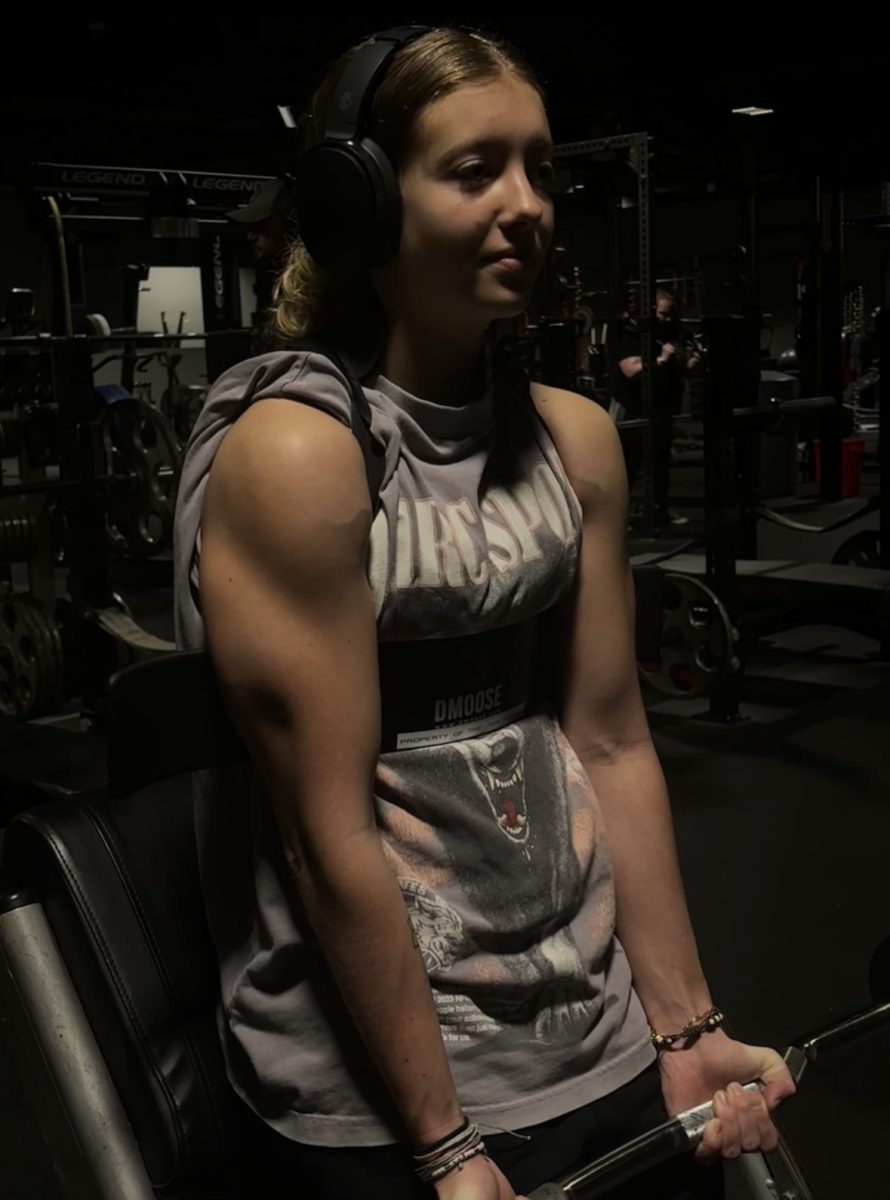Weight training is a popular activity amongst men and is commonly considered a masculine hobby. This toxic stereotype has excluded women from weight training–until now.
Women are often reluctant to lift weights, as they fear it will make them look “bulky” or “unfeminine.”
Let’s break down this myth.
Firstly, femininity is defined as the quality or nature of females, meaning it comes from within. Lifting does not make anyone “less” of a woman. Feeling beautiful is associated with looking beautiful, and lifting weights can be a reason for that. Lifting weights has helped with my self-esteem and has also given me a sense of purpose.
Secondly, women have different hormonal makeups and won’t build muscle mass the same as men will. Gaining muscle does not happen by accident. In order to build a significant amount of muscle mass, it takes intention and determination. I, along with many other women, have to lift consistently, train until failure, and stick to a sufficient diet in order to see progress.
Thirdly, lifting weights is a form of self-expression and can serve as a confidence boost. Going to the gym may seem like a chore; however, the results are worth it. Women should weight train for its many benefits, physical and mental, while not fearing the myth of “unfemininity.”
Weight training for women is even recommended by doctors throughout all stages of life. This includes adolescence, pregnancy, postpartum, and post-menopause. In the long term, weight training can prevent chronic diseases, promote bone health, and decrease the risk of injury. The benefits of lifting weights are unique to women in their ability to strengthen the pelvic floor, decrease urinary incontinence, and minimize postpartum depression.
I discovered weightlifting after quitting my lifelong sport, gymnastics. I already had a strong foundation for building muscle, and lifting weights became my favorite hobby. Yes, I did have allegations of being “too muscular” and “manly looking,” but I felt better than ever. I had become the strongest, healthiest, and most confident version of myself, which is what really matters.
The first female bodybuilder, Abbye Stockton, once said, “People used to say that if women worked out, they would become masculine looking. We just laughed because we knew they were wrong.”
Women should not fear the world of toxic masculinity surrounding weightlifting. Let’s face it, being a strong woman is empowering and–don’t forget–feminine.








